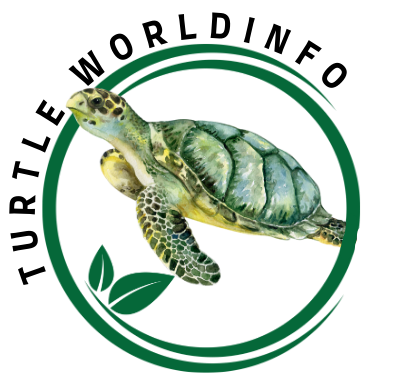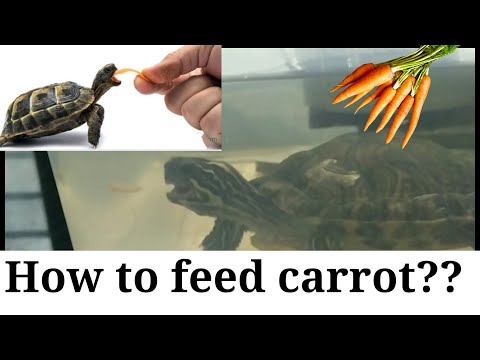
Box turtles are fascinating creatures that captivate the hearts of many reptile enthusiasts. Their unique appearance, docile nature, and longevity have become popular pets worldwide.
As responsible caretakers, providing these turtles with a well-rounded and nutritious diet is crucial to ensure their overall health and well-being.
While box turtles have specific dietary requirements, there is often confusion about whether they can safely consume certain foods, such as carrots.
In this blog post, we aim to unravel the truth about box turtles’ diet and answer the burning question: Can box turtles eat carrots? By delving into the natural diet of box turtles, understanding their nutritional needs, and examining the properties of carrots, we will shed light on this topic.
Whether you’re a curious box turtle owner or simply interested in learning more about these remarkable reptiles, this article will provide valuable insights and guidance.
Can Box Turtles Eat Carrots?
Box turtles can eat carrots. Carrots are a safe and nutritious food option for box turtles when offered in moderation. They are a good source of vitamins, minerals, and fibre, which can contribute to a well-rounded diet for these reptiles.
However, it’s important to remember that carrots should not be the sole or primary component of a box turtle’s diet. Box turtles require a diverse range of foods to meet their nutritional needs adequately.
Therefore, while carrots can be included in their diet, they should be offered alongside other vegetables, fruits, protein sources, and calcium-rich foods to ensure a balanced and varied diet for optimal health.
Nutritional Requirements of Box Turtles:
| Nutrient | Importance | Food Sources |
| Protein | Essential for growth and tissue repair | Insects (crickets, mealworms), snails, earthworms |
| Calcium | Vital for shell and bone development | Dark leafy greens (kale, collard greens), calcium supplements |
| Vitamin A | Promotes proper vision and immune function | Dark leafy greens, carrots, sweet potatoes, squash |
| Vitamin D3 | Facilitates calcium absorption | Natural sunlight, UVB lighting, calcium supplements |
| Fibre | It aids in digestion and prevents constipation | Dark leafy greens, vegetables, fruits |
| Moisture | Prevents dehydration | Freshwater, soaked vegetables, occasional fruits |
| Minerals (e.g., potassium, magnesium) | Essential for overall health | A variety of fruits and vegetables, insects, calcium-rich foods |
Examining Carrots as a Food Option for Box Turtles:
When examining carrots as a food option for box turtles, there are several factors to consider. Let’s take a closer look:
- Nutritional Value: Carrots are known for their rich nutritional profile. They are a good source of vitamin A, essential for maintaining healthy skin, vision, and immune function. Carrots also provide dietary fibre and some minerals, such as potassium.
- Digestibility: Box turtles have a relatively slow digestive system, and their ability to break down plant matter can vary. While box turtles can eat carrots, it’s important to note that they have limited ability to digest plant cell walls, which may make it challenging for them to extract all the nutrients from carrots. Therefore, carrots should be prepared in a way that makes them easier to consume, such as grating or finely chopping them.
- Calcium-to-Phosphorus Ratio: Box turtles require a calcium-to-phosphorus ratio of approximately 2:1 in their diet for proper shell and bone development. While carrots contain some calcium, they also have higher levels of phosphorus. Therefore, feeding large quantities of carrots alone could potentially upset the calcium-to-phosphorus balance, leading to health issues like metabolic bone disease. Providing a varied diet that includes other calcium-rich foods is crucial to maintain the proper ratio.
- Moderation and Variety: As with any food, moderation is key. Carrots should be offered as part of a varied diet that includes other vegetables, fruits, protein sources, and calcium-rich foods. Offering a wide range of foods ensures that box turtles receive balanced nutrients.
- Individual Tolerance: Each box turtle may have different preferences and tolerances regarding food. While some box turtles may readily accept and digest carrots, others may not show interest or have difficulty digesting them. Observing your turtle’s response to carrots and adjusting its diet is essential.
Are Carrots Good for Turtles?
Carrots can be a beneficial addition to a turtle’s diet, including species like box turtles. These vibrant orange vegetables offer several nutritional benefits.
Carrots are rich in vitamin A, crucial in maintaining healthy skin, vision, and immune function.
Additionally, they provide dietary fibre, promoting healthy digestion and preventing constipation in turtles. However, it’s important to remember that carrots should be given in moderation and as part of a varied diet.
While they offer certain nutrients, they also contain higher phosphorus levels than calcium, which can disrupt the calcium-to-phosphorus balance in a turtle’s diet if fed excessively.
Therefore, providing a diverse range of foods, including other vegetables, fruits, protein sources, and calcium-rich options, is essential to ensure a well-rounded and nutritionally balanced diet for turtles.
Consulting a reptile veterinarian or a specialist is always recommended for specific dietary recommendations tailored to your turtle’s needs.
Some reasons why carrots can be considered good for turtles:
Certainly! Here are some reasons why carrots can be considered good for turtles:
- Vitamin A Content: Carrots are known for their high vitamin A content, essential for maintaining healthy skin, vision, and immune function in turtles. Vitamin A plays a crucial role in supporting overall health and vitality.
- Dietary Fiber: Carrots are a good dietary fibre source, promoting healthy digestion in turtles. Fibre aids in maintaining regular bowel movements and preventing constipation, which can be common issues in captive turtles.
- Hydration: Carrots have a high water content, contributing to the hydration of turtles. While turtles also require a separate water source, including moisture-rich foods like carrots in their diet can contribute to their overall hydration levels.
- Enrichment and Variety: Offering carrots as part of a varied diet adds enrichment and variety to a turtle’s feeding routine. Introducing different textures and flavours can stimulate their foraging behaviour and provide mental stimulation, enhancing their overall well-being.
- Nutritional Boost: While carrots should not be the sole component of a turtle’s diet, they can provide a nutritional boost due to their array of vitamins, minerals, and antioxidants. Including carrots alongside other nutrient-rich foods helps to provide a more balanced and diverse nutritional profile for turtles.
How Do I Feed Carrots to Turtles?
Feeding carrots to turtles requires some preparation to ensure they are safe and easily digestible. Here’s a step-by-step guide on how to feed carrots to turtles:
- Choose Fresh Carrots: Select fresh carrots that are firm, free from mould or rot, and have a vibrant orange colour. Organic carrots are preferred to minimize the risk of pesticide exposure.
- Wash Thoroughly: Before feeding carrots to turtles, wash them thoroughly under running water to remove any dirt or contaminants. This helps ensure the carrots are clean and safe for consumption.
- Preparation Techniques: Turtles may have difficulty consuming whole carrots due to their hard texture. Here are a few preparation techniques to make carrots more suitable for turtles:
- Grate the Carrots: Using a grater, grate the carrots into small, bite-sized pieces. This makes it easier for turtles to consume and digest.
- Finely Chop the Carrots: Alternatively, you can finely chop the carrots into small, manageable pieces. This method also helps turtles to chew and digest the carrots effectively.
- Steam or Boil the Carrots: If your turtle has difficulty chewing or you want to soften the carrots further, consider steaming or boiling them until they become softer and more easily consumed. Ensure that the carrots are cooled down before offering them to the turtle.
- Offer in Moderation: Carrots should be offered as part of a balanced and varied diet. They should not make up the majority of a turtle’s food intake. Instead, offer a moderation of carrots and other vegetables, fruits, protein sources, and calcium-rich foods to provide a well-rounded nutritional profile.
- Monitor Consumption: Observe your turtle’s response to the carrots. Not all turtles may have the same preferences or tolerance for carrots. If your turtle shows little interest or has difficulty digesting carrots, limiting or avoiding them in their diet may be best.
- Rotate and Vary the Diet: To ensure a healthy and diverse diet, rotate the types of vegetables and fruits you offer to your turtle, including carrots. This helps provide a range of nutrients and prevents over-reliance on a single food item.
Alternative Food Options for Box Turtles:
While box turtles have specific dietary requirements, offering them various food options is beneficial to ensure a balanced and nutritionally diverse diet. Here are some alternative food options to consider for box turtles:
- Leafy Greens: Alongside the staple dark leafy greens like kale and collard greens, you can incorporate other greens such as romaine lettuce, spinach, mustard greens, and Swiss chard. These provide additional vitamins, minerals, and fibre to support your turtle’s health.
- Vegetables: Expand the vegetable selection beyond leafy greens. Consider offering vegetables like carrots, sweet potatoes, squash, bell peppers, zucchini, and cucumbers. These vegetables add variety and contribute to a well-rounded diet.
- Fruits: Offer a range of fruits to your box turtle in moderation. Examples include berries (strawberries, blueberries, raspberries), melons (watermelon, cantaloupe), mangoes, papayas, and bananas. Fruits can provide natural sugars, vitamins, and minerals but should be given sparingly due to their high sugar content.
- Protein Sources: Insects and worms are excellent protein sources for box turtles. Offer live insects like crickets, mealworms, earthworms, silkworms, and snails. These protein-rich options help satisfy your turtle’s dietary needs and stimulate natural foraging behaviours.
- Calcium-Rich Foods: Box turtles require calcium for proper shell and bone development. Incorporate calcium-rich foods into their diet, such as cuttlebone, calcium supplements, or calcium-dusted insects. Calcium blocks or powders designed for reptiles can also be used.
- Edible Flowers: Some flowers are safe and nutritious for box turtles. Examples include hibiscus petals, dandelion flowers, and nasturtiums. Ensure the flowers are pesticide-free before offering them as part of your turtle’s diet.
- Commercial Turtle Diets: Commercial turtle pellets or formulated diets can be a convenient option to provide a well-balanced diet. Look for high-quality commercial turtle foods specifically designed for box turtles and ensure they are supplemented with fresh vegetables and occasional protein sources.
Conclusion
In conclusion, understanding the dietary needs of box turtles is essential for their overall health and well-being. While carrots can be included in their diet, they should not be the sole or primary component.
Carrots offer nutritional benefits, including vitamin A and dietary fibre, but they should be provided in moderation and as part of a varied and balanced diet.
Box turtles require diverse foods, including leafy greens, vegetables, fruits, protein sources, and calcium-rich options, to meet their specific nutritional requirements.
It’s important to practice safe feeding practices, gradually introduce new foods, and consult a reptile veterinarian or specialist for tailored dietary recommendations.
Providing a nutritionally diverse diet and following proper care guidelines ensures that your box turtle thrives and enjoys a healthy and fulfilling life.

